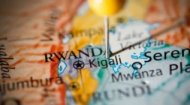|
Its population has experienced rapid growth over the past two decades, now estimated to be well over 1.5 million residents, with young people making up around 60% of its population, of whom just over half are female. This demographic dividend presents both opportunities and challenges, fueling the city's workforce while demanding robust social services and infrastructure. Kigali is a mosaic of communities, ranging from long-established neighbourhoods to newly developed residential areas, attracting not only Rwandans from across the country but also a growing expatriate community drawn by its stability and economic prospects. Kigali's economic profile underlines Rwanda's undisputed economic powerhouse, contributing significantly to the national GDP. Its economy is predominantly service-driven, reflecting the country's strategic shift towards a knowledge-based, service-oriented economy. 1. Dominance of the Services Sector: Financial and Business Services: Kigali hosts the headquarters of major banks, insurance companies, and a nascent stock exchange, positioning itself as a regional financial hub. Professional services, including consulting and legal firms, are also expanding rapidly. Information and Communication Technology (ICT): Often dubbed the "Silicon Valley of Africa," Kigali is investing heavily in ICT infrastructure and innovation. Tech hubs, incubators, and a burgeoning startup ecosystem are fostering digital transformation, attracting both local talent and foreign investment in software development, fintech, and e-commerce. Tourism and Hospitality: The city boasts world-class hotels, convention centres, and a growing number of restaurants and entertainment venues. MICE (Meetings, Incentives, Conferences, and Exhibitions) tourism, anchored by the iconic Kigali Convention Centre, is a significant foreign exchange earner, attracting major international events. Fazenda Sengha horse ranch is worth a visit for horseback riding. At time of writing, it has yet to secure internationally known fast-food outlets, it caters well to tourists with non-African tastes (although most chefs have trained and worked within Rwanda so know what a burger or pizza is supposed to look like but without the knowledge of what it is supposed to taste like!) Trade and Commerce: Vibrant markets, modern shopping malls, and a burgeoning retail sector drive internal trade, making Kigali the primary distribution hub for goods entering and leaving Rwanda. |
Kigali Profile |
Kigali Profile |
Kigali Profile | Kigali Profile |
For information, videos and photos of the African nation of Rwanda, check out our Rwanda pages.
More >
 |

|
2. Emerging Industries and Investment Climate: Light Manufacturing and Construction: While the service sector leads, there's a concerted effort to grow light manufacturing, particularly in agro-processing, textiles, and construction materials. The construction sector itself is booming, with new commercial buildings, residential complexes, and infrastructure projects constantly reshaping the city's skyline. Investment Promotion: The Rwandan government has implemented policies to create an exceptionally business-friendly environment, characterised by low corruption, streamlined registration processes, and attractive incentives for investors. The Kigali Special Economic Zone (KSEZ) provides dedicated infrastructure and simplified procedures for manufacturing and export-oriented businesses. Infrastructure Development: Robust investments in infrastructure, including well-maintained road networks, an expanding international airport, and widespread fibre optic connectivity, underpin Kigali's economic dynamism and facilitate both local and international commerce. Kigali's social profile is marked by high quality of life standards, a strong emphasis on public welfare, and a unique spirit of community. A. Quality of Life and Urban Planning:
Safety and Cleanliness: Kigali is consistently ranked as one of Africa's safest and cleanest cities. In fact, one of the most striking features about Kigali is how clean it is compared with other African capital cities and towns. There is no rubbish littering the well-maintained streets, and the police maintain an active presence. This is attributed to strict environmental regulations (e.g., plastic bag ban) and the communal effort of "Umuganda" (monthly community work), fostering a strong sense of civic responsibility and ownership among residents. Green Spaces and Orderly Development: Urban planning prioritises green spaces, pedestrian-friendly areas, and orderly development, contributing to a pleasant living environment. Healthcare and Education: Significant investments have been made in public health and education. The city hosts leading hospitals like King Faisal Hospital and CHUK (Centre Hospitalier Universitaire de Kigali), alongside a network of local clinics. Education is prioritised, with numerous public and private schools, vocational training centres, and universities, including the University of Rwanda and Carnegie Mellon University Africa, contributing to human capital development. Housing: While rapid urbanisation presents challenges, efforts are underway to provide affordable and planned housing solutions, shifting away from informal settlements towards structured residential communities. B. Culture and Community Cohesion: Kigali's social profile is a melting pot of Rwandan culture, embracing traditional values while integrating modern influences. The city actively promotes arts, music, and cultural events, reflecting a vibrant contemporary scene. Places of interest include the Rwanda Art Museum which is based in the former Presidential Palace on the outskirts of Kigali and houses more than 100 works of art. Crucially, Kigali embodies Rwanda's narrative of national unity and reconciliation post-1994. Social cohesion is deeply embedded in public policy and community initiatives, fostering a harmonious and inclusive urban environment. Despite its impressive progress, Kigali faces challenges inherent in rapid urbanisation. These include managing population density, ensuring equitable access to services for all residents, integrating the informal sector into the mainstream economy, and addressing environmental sustainability, particularly waste management and climate change resilience. However, the opportunities far outweigh the challenges. Kigali's strategic location, strong governance, continued emphasis on technology and innovation, and its role as a regional MICE hub position it for sustained growth. The city's commitment to sustainable urban development, green initiatives, and human capital investment solidifies its ambition to be a leading model city in Africa – a hub for business, innovation, and high-quality living. |
 However, Kigali's profile is inextricably linked with the devastating 1994 Genocide against the Tutsi. For approximately 100 days, the city became the epicentre of horrific violence and destruction, leaving much of its infrastructure in ruins and its population reeling from unimaginable loss. This period represents the darkest chapter in its history, a time of profound trauma that reshaped the nation and its capital. In its memory, the Kigali Genocide Memorial Centre opened in April 2004 featuring a permanent exhibition of the Rwandan genocide and an exhibition of other genocides around the world. No visit to the city is complete without a visit to the centre, despite it being an upsetting, experience especially the 'children's room' (right) which is adorned with photographs by parents of their children happily smiling into the camera just days, weeks or months before their lives were stolen so brutally in the genocide. For those with an eye to history, the grounds of the centre still have debris from the blown-up presidential jet that crashed on April 6, 1994 sparking the genocide.
However, Kigali's profile is inextricably linked with the devastating 1994 Genocide against the Tutsi. For approximately 100 days, the city became the epicentre of horrific violence and destruction, leaving much of its infrastructure in ruins and its population reeling from unimaginable loss. This period represents the darkest chapter in its history, a time of profound trauma that reshaped the nation and its capital. In its memory, the Kigali Genocide Memorial Centre opened in April 2004 featuring a permanent exhibition of the Rwandan genocide and an exhibition of other genocides around the world. No visit to the city is complete without a visit to the centre, despite it being an upsetting, experience especially the 'children's room' (right) which is adorned with photographs by parents of their children happily smiling into the camera just days, weeks or months before their lives were stolen so brutally in the genocide. For those with an eye to history, the grounds of the centre still have debris from the blown-up presidential jet that crashed on April 6, 1994 sparking the genocide.






